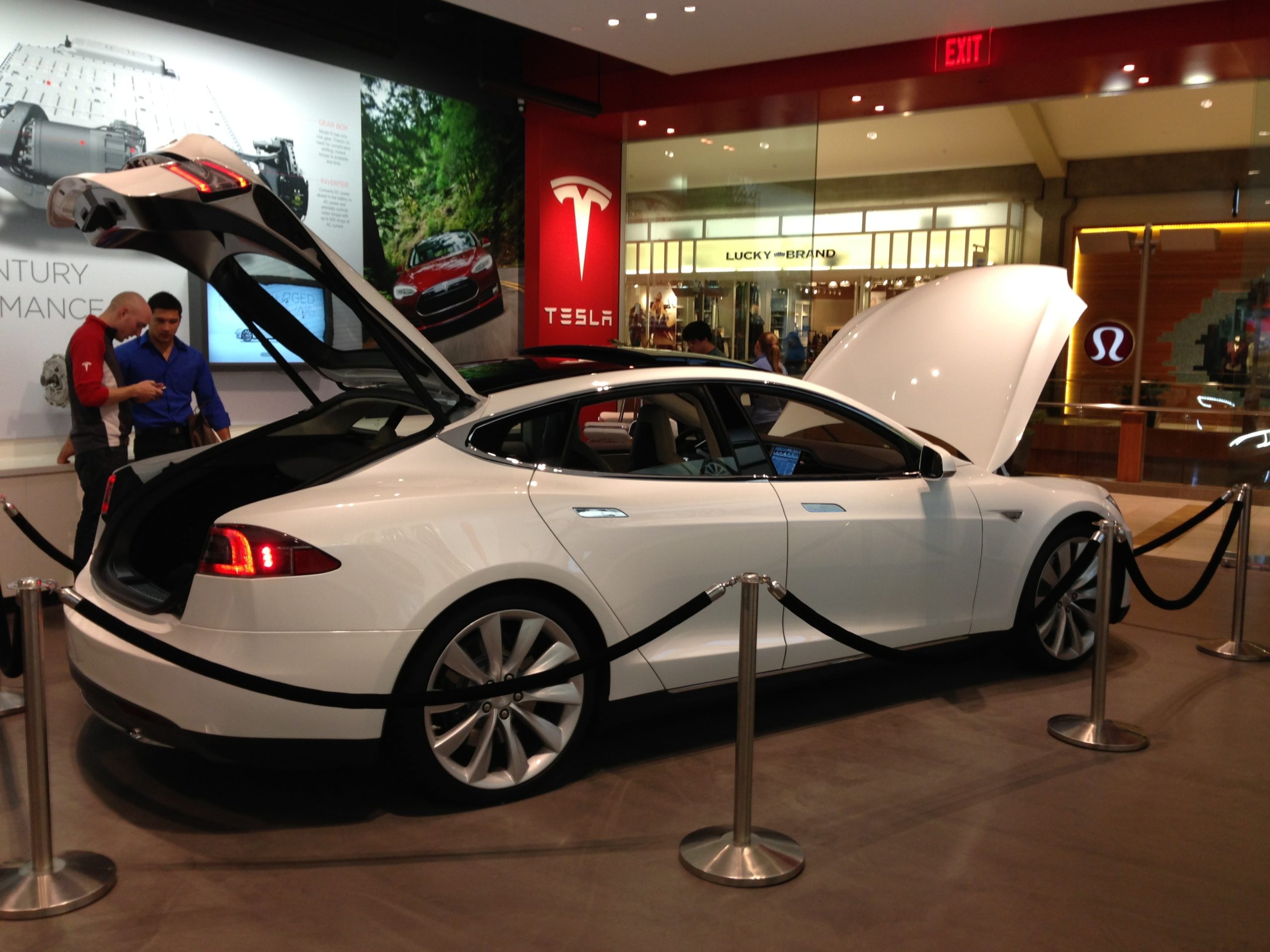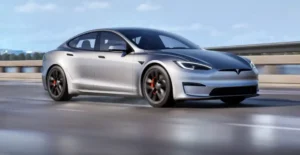We expect the Tesla Model S to be a hot ship. Our first-hand experience in the sub 4 seconds to 60 Tango lets us understand the stunning performance available from electric car. On paper the Tesla looks good.
The Tesla corporate brochure claims that the 85 kWh Model S have an impressive 265-mile EPA-rated range, and that it’ll do the benchmark 0-60 mph sprint in only 4.4 seconds.
That means the all-electric luxury sport sedan from Tesla Motors is at least as fast as a high spec Porsche 911 and decidedly faster than my 911.
But how do you quantify that sort of speed in the real world? If you’re Drag Times, you put it on the strip, preferably head to head against an American legend like the Dodge Viper SRT10. And then you beat it.
Indeed, the electric Tesla made a mockery of the shiny red sports car–posting a quarter-mile time of little over 12 seconds in the process.
A second video shows the Tesla’s fastest pass, at 12.371 seconds and 110.84 mph. There aren’t a great many production cars which would do better–mostly vehicles well into the “supercar” or “hypercar” brackets, and at even higher cost than the Model S.
Some of the other statistics are outstanding too.
Drag Times recorded a 3.9-second 0-60 mph time on their VBOX timing gear. Given the Tesla’s hefty weight at the curb of 4,690 lbs, it’s even more impressive–weight is always the enemy of speed.
Huge low-down torque helps, of course–the 416-hp Model S Performance develops 443 lbs-ft or 600 newton meters
from zero to 5,100rpm, and power delivery is much smoother too.
While that driver in the Viper had to manage wheelspin and shift gears, the Tesla driver just has to sink the right pedal and keep it on the floor until he passes the 1/4-mile mark.
With zero emissions and supercar-slaying acceleration, it seems you can really have your cake and eat it too.




